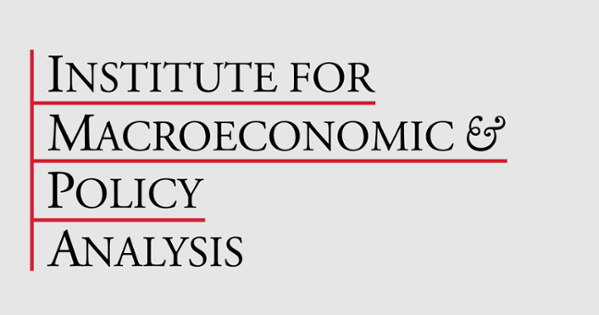IMPA Releases Policy Brief on Biden Budget Proposal to Raise Capital Gains Taxes

President Joe Biden’s budget proposal for 2025 includes a host of significant tax changes aimed at increasing revenue with higher taxes on the wealthy and corporations. A new report from AU’s Institute for Macroeconomic and Policy Analysis finds that increasing taxes on dividends and capital gains would raise revenue for government coffers and yield modest increases in GDP and earnings for lower-income households.
Contrary to views that such higher taxes would dampen economic growth, the review by IMPA finds no adverse long-term impacts. This is because these taxes primarily affect stock market valuations; they have little effect on investment decisions made by corporations.
IMPA’s review of the tax proposals in the budget shows:
1. Biden’s proposal seeks to increase the tax rate on dividends and capital gains for households earning over $1 million to 39.6 percent, up from 20 percent. This would result in mild expansionary effects of increasing GDP, capital stock, employment and wages in the long term. These tax increases would raise government revenue by approximately 5 percent while fostering growth of about 1 percent.
2. While wealth disparities and inequality in America are due to many factors, IMPA’s review finds that tax hikes on dividends and capital gains would lead to positive benefits in helping to close the wealth inequality gap: a reduction of income and wealth among top earners and gain in significant revenues, while modestly increasing income for lower-income households.
American University Prof. Ignacio González, co-director of IMPA, assistant professor of economics, and co-author of the new brief, describes how IMPA’s modeling reveals no economic harm -- especially concerning investment and employment:
"Taxes on capital gains and dividends are levied on corporate distributions and, hence, they tax profits after investments have been made. As a result, these taxes primarily influence stock market valuations, impacting the wealth holdings of the wealthiest individuals,” González explained. “Since they do not exert a negative effect on investment decisions, they are not anticipated to hinder economic growth.”
In fact, González added, profits allocated to investment tend to rise, leading to a small – but positive – “crowding in” effect that results in modest GDP growth. The taxes represent a highly efficient means of generating revenue: They mitigate inequality without impeding economic growth.
